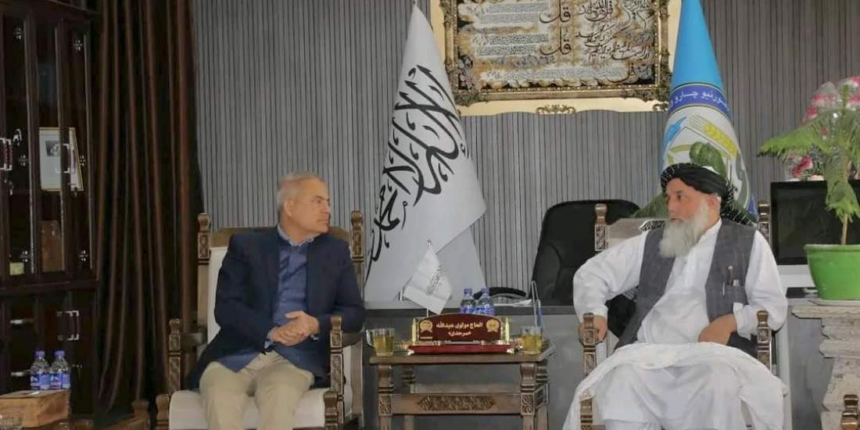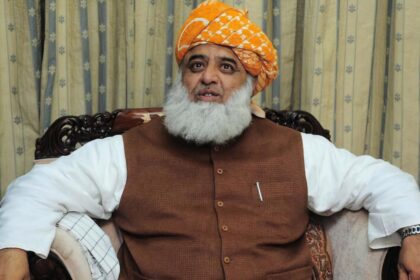RASC News Agency: In the shadow of growing public anger and international concern, Indrika Ratwatte, Deputy Head of the United Nations Assistance Mission in Afghanistan (UNAMA), visited the central province of Bamiyan to assess the distribution of humanitarian assistance. His visit came amid mounting allegations that the Taliban have turned aid delivery into a network of corruption, favoritism, and political patronage.
During meetings with the Taliban-appointed governor, Mullah Abdullah Sarhadi, Ratwatte emphasized that transparency and accountability are essential for humanitarian credibility. The Taliban official, however, sought to defend his administration, claiming that the aid distribution process in Bamiyan is “fully transparent” and conducted “according to international standards.” Observers and local residents strongly dispute that claim, describing the process as a façade for systematic misappropriation.
Ratwatte, who oversees UNAMA’s humanitarian and development operations, met with local Taliban representatives, provincial officials, and Bamiyan residents. In a post on X (formerly Twitter), he said his visit focused on evaluating the effectiveness of ongoing relief projects, the execution of development initiatives, and the identification of urgent community needs.
The Taliban-controlled provincial office later released a statement asserting that Sarhadi had requested UNAMA’s “special attention” to the province’s health, livelihood, and infrastructure challenges. The statement also claimed that the Taliban administration was “ready to cooperate” in monitoring aid implementation. Yet on the ground, locals tell a different story one of exploitation, discrimination, and neglect.
Residents in Bamiyan accuse Taliban authorities of distributing aid based on loyalty rather than need. They report that humanitarian packages often funded by the United Nations or international donors are routinely diverted to Taliban members, their relatives, and political allies. “Every time aid arrives, the same people receive it,” said a schoolteacher from Bamiyan, speaking on condition of anonymity. “The poor, the widowed, and the displaced are left out while Taliban affiliates fill their storerooms.”
Ratwatte, in his remarks, stressed that UNAMA is committed to ensuring that humanitarian assistance is delivered equitably, efficiently, and without discrimination. He also pledged to raise the grievances of Bamiyan’s residents with international bodies in Kabul and to advocate for more robust oversight mechanisms. But critics warn that without independent monitoring, such promises will remain aspirational at best.
Despite millions of dollars in international humanitarian aid flowing into Bamiyan, local communities say there has been no visible improvement in their living conditions. “We hear about millions in aid arriving every month,” said a farmer from the Yakawlang district, “but the hunger in our homes grows worse. The Taliban steal the aid, then claim the world has abandoned us.”
Human rights advocates and social activists assert that Bamiyan’s suffering is not an isolated case, but part of a nationwide pattern under Taliban rule. Multiple reports by the UN Office for the Coordination of Humanitarian Affairs (OCHA) and other agencies have documented the Taliban’s systematic interference in aid distribution ranging from the intimidation of aid workers to the confiscation of supplies.
OCHA has repeatedly cautioned that Taliban obstruction has forced numerous humanitarian agencies to scale back or suspend their operations, depriving tens of thousands of Afghanistani families of life-saving food and medical support. The result, analysts say, is a deepening humanitarian catastrophe that has left Afghanistan on the brink of starvation and despair.
Independent observers note that the Taliban’s exploitation of international aid has transformed relief work into an extension of the regime’s control apparatus. By appointing loyalists to local aid committees and threatening NGO staff, the Taliban have effectively weaponized humanitarian assistance, turning compassion into coercion.
Until the Taliban allow independent oversight and end their interference, experts warn, the cycle of corruption and deprivation will continue to punish the most vulnerable. As one Bamiyan activist put it, “The aid that enters our valleys in the name of mercy ends up feeding the oppressors, not the hungry.”






